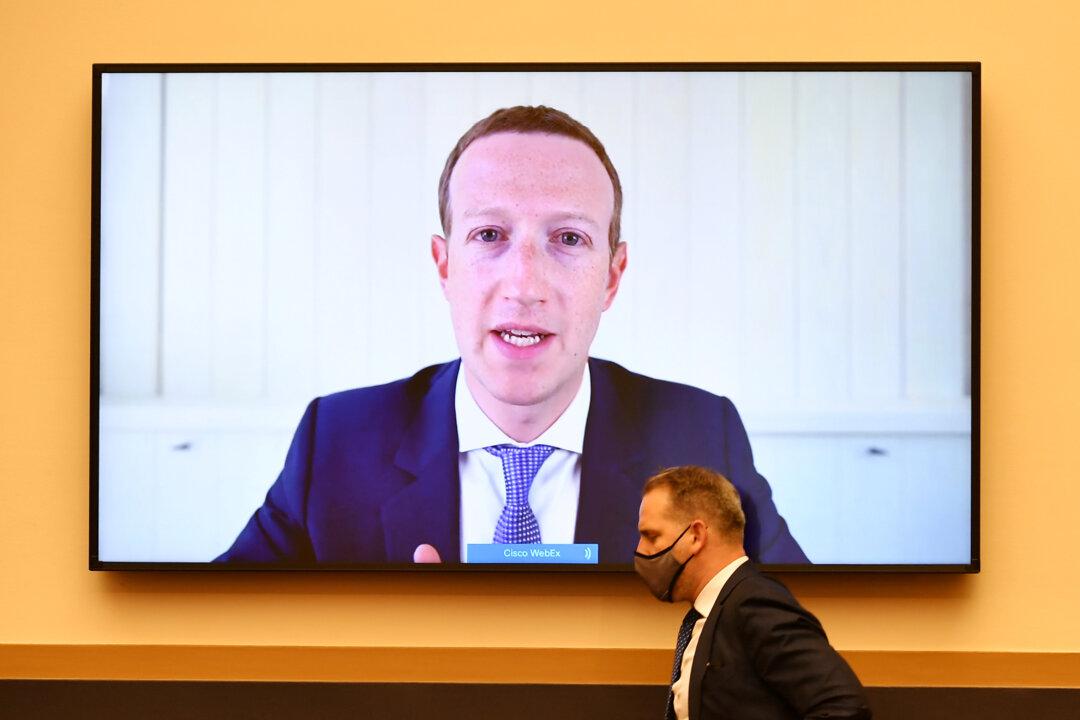The Facebook group where supporters of President Donald Trump discussed allegations of voter fraud and organized rallies across the country was purged from the platform in an effort to prevent “violence or civil unrest,” Facebook CEO Mark Zuckerberg said.
Zuckerberg, alongside Twitter CEO Jack Dorsey, testified Tuesday before the Senate Judiciary Committee about their companies’ actions around the presidential election.





